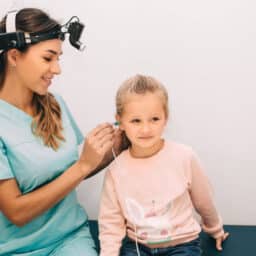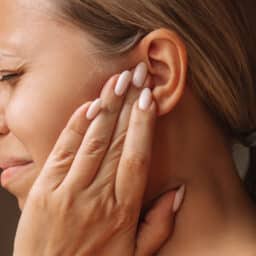Preparing for a Nasal Endoscopy: What You Need to Know

Nasal endoscopies are vital for diagnosing and treating chronic sinusitis, nasal polyps, deviated septum, congestion, blockages and other nasal conditions. Understanding what this procedure entails and how to prepare for it can help ease any concerns about undergoing a nasal endoscopy. Nasal endoscopies have become increasingly common. A study on Medicare patients from 2000 to…
How to Care for Your Sinuses

Sinuses are an integral part of our respiratory system. These hollow spaces in our skulls are crucial in filtering, moisturizing and warming the air we breathe. However, factors such as allergies, infections and environmental irritants can disrupt their function, leading to discomfort and congestion. Let’s explore essential tips for sinus care to help you maintain…
Is Notch Therapy a Good Option for Your Tinnitus?

The presence of a noise in the ears, usually a buzzing, ringing or humming, that cannot be heard from the outside or attributed to an external source is a symptom of tinnitus. Tinnitus affects more than 50 million people in the United States, leading to various adverse effects such as stress, anxiety, frustration, impaired relationships,…
How Can You Help Your Child Embrace Their Hearing Aids?

Change can be a little scary when you’re a kid. From small changes like new friends and classrooms to significant changes like new schools and homes, a child’s life is constantly shifting, and it is natural for them to feel a little unsteady. Hearing aids are one big change you and your child may not…
What Is Reactive Tinnitus

Tinnitus is ringing or buzzing in one or both ears. Reactive tinnitus is when average noises in your environment affect the intensity of your tinnitus symptoms. Nearly 10% of the U.S. population has experienced tinnitus lasting at least five minutes in the past year. If you’ve experienced an increase in the intensity of your tinnitus symptoms after…
When Should You Get A Hearing Test

Approximately 15% of American adults report some trouble hearing. You may sometimes wonder how much hearing loss is too much and when you should seek out a hearing test. Nearly 28.8 million adults could benefit from the use of hearing aids, and hearing aids are a helpful tool in improving the overall quality of life…
Three Ways Hearing Loss Can Increase Your Anxiety

Studies have shown that untreated hearing loss is linked to higher rates of anxiety. Let’s look at a few of the reasons this happens, as well as what you can do to improve your mental health. Worries About Your Hearing Health There can be a lot of questions and worries when you start to experience…
Common Misconceptions About Hearing Loss

Treating hearing loss is an integral part of staying healthy and connected to your family and your community. Unfortunately, many people with hearing loss delay or completely avoid getting treatment. While many factors play a part in this, one reason people don’t get the treatment they need is because of common misconceptions they believe about…
Is Sinusitis Causing Your Tooth Pain?

Tooth pain can cause irritation and reduce the enjoyment of your favorite dinner at Erio’s Ristorante. When a patient is experiencing tooth pain, there is usually an obvious dental reason, but there are cases wherein ruling out sinusitis as the source is an excellent first step in treatment. Approximately 28.9 million U.S. adults were diagnosed…
How to Identify and Manage Nonallergic Rhinitis

Rhinitis is a reaction that can cause nasal congestion, runny nose, sneezing, itching and more. Rhinitis is generally considered either allergic, as a reaction to an allergen, or nonallergic, typically occurring year-round and not triggered by any known allergen. Treating allergic rhinitis may involve a combination of the following: Because a specific allergen does not…
